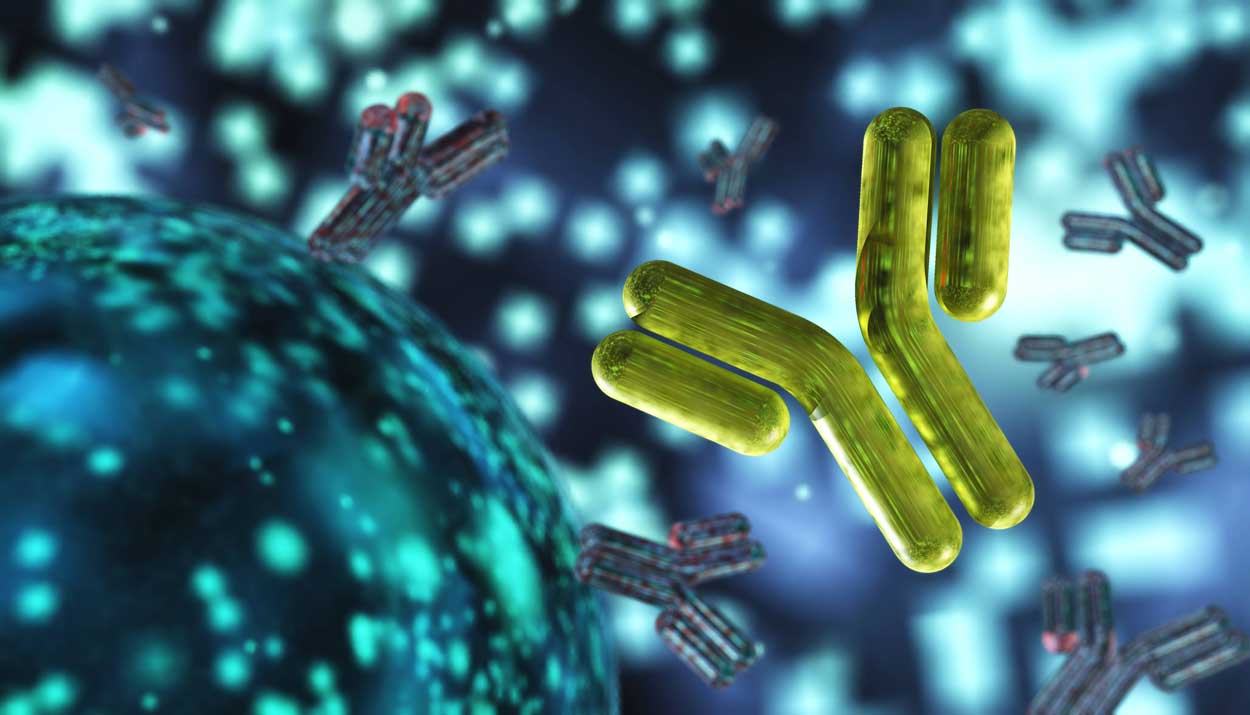In 2007, LifeArc entered a collaboration with Organon – ultimately acquired by Merck – to translate innovative drug targets into potent and selective therapeutic antibody candidates that could be progressed into pre-clinical and clinical studies.
Organon was stepping up its efforts to discover and develop novel biotherapeutics for oncology and auto-immune disorders.
Why humanisation?
At LifeArc, we already had a proven track record in antibody humanisation, encompassing around 30 successfully humanised antibodies at that time. We were selected to use CDR grafting technology to generate a humanised clinical candidate from a murine (mouse) antibody from Organon’s research.
LifeArc’s antibody engineering team advanced the candidates supplied and carried out humanisation. The humanisation process changes portions of the original mouse antibody into sequences that more closely resemble those of a human antibody. This is a vital step in developing a therapeutic antibody as it reduces the chance that the antibody will be recognised as ‘foreign’ when it is administered to the patient, and so attacked by the patient’s own immune system.
One of those candidates was the antibody that became Keytruda (pembrolizumab). Keytruda is an immune-therapy – it aids the body’s own immune system in attacking the cancer cells.
Immunotherapy for a breakthrough cancer treatment
Traditionally, treating cancer has been through using chemotherapy or radiotherapy to kill those cells that are multiplying rapidly. As a result, the treatment affects many cells in the body not just cancer cells – which is why some patients may lose their hair on certain types of chemotherapy.
Immunotherapy is a relatively new approach that harnesses the body’s own defence mechanisms. In some types of cancer, the cancer cells have evaded part of the immune system’s natural processes to identify which cells should be targeted for destruction. Pembrolizumab targets one of these pathways – PD-1 – and so the cancer cells become ‘visible’ to the immune system.
Dr. David Matthews, Associate Director, Biotherapeutics, LifeArc explains: “These are drugs known as checkpoint inhibitors; they take the brakes off the immune system and prevent the tumour from hiding from the patient’s own defences. Once the tumour is exposed to the immune system, the body is pretty effective at destroying it safely.”
Keytruda received its first approval in 2014 for advanced melanoma. It is now available in 85 countries for a range of cancers including lung and stomach.
Antibody engineering expertise
Our antibody engineering service has successfully humanised more than 65 antibodies, including four that are medicines on the market and five in clinical trials within pharma pipelines.

